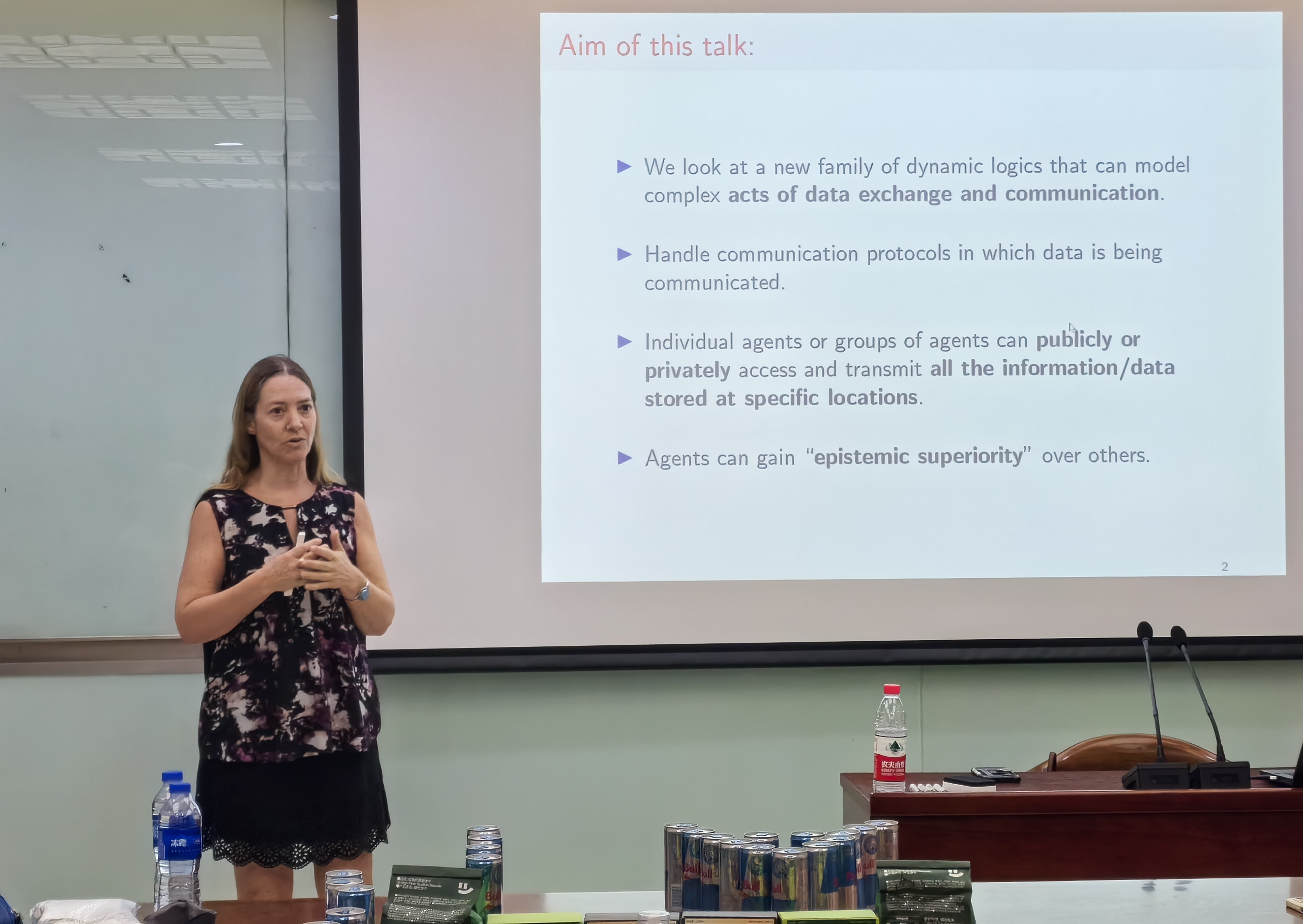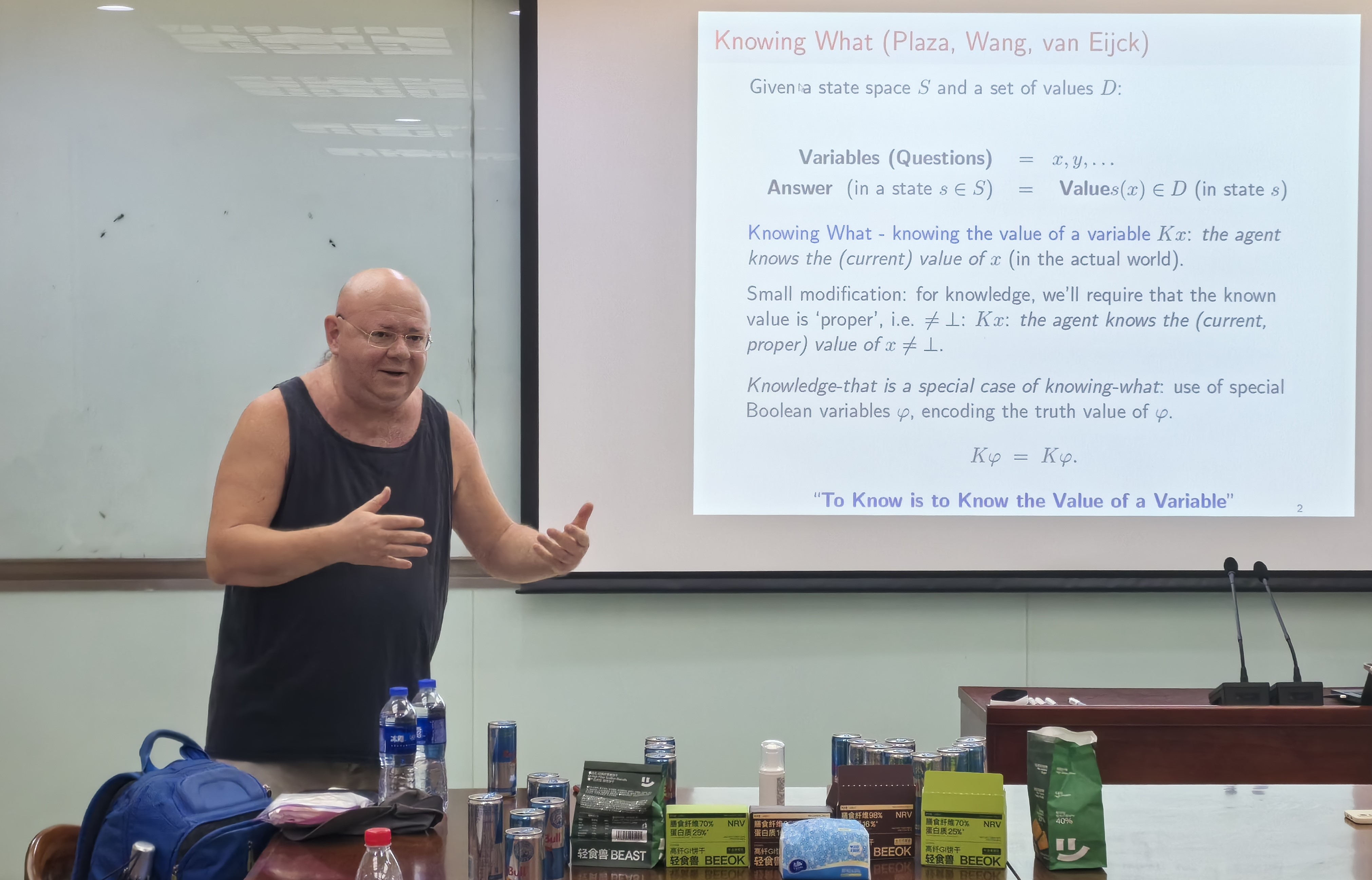



5月10日,Sonja Smets教授作了题为《Reasoning about Epistemic Superiority and Data Exchange》的报告。

随后,Alexandru Baltag教授作了题为《Data-exchange events with preconditions and knowledge of values》的报告。

In the first talk, Sonja Smets pays attention to actions by which agents gain access to other agents' information databases, and thus can in principle learn everything known to those others, acquiring epistemic superiority over them.
Sonja Smets proposes a number of powerful dynamic-epistemic logics for multi-agent information sharing and acts of publicly or privately accessing other agents' information databases. More specifically, in view of the fact that not all epistemic agents are equal and an agent may know everything that another agent knows, Sonja Smets enriches static epistemic logic with a new ingredient——comparative epistemic assertions for individuals or groups, that can capture epistemic superiority, and give a complete axiomatization of the resulting logic. To deal with more complex scenarios (involving privacy, secrecy, hacking etc) for which state models capturing only static information are not enough, Sonja Smets adapts "event models" to these reading actions. Then she describes the dynamics induced by a reading event by defining a product update operation. Using this operation, Sonja Smets further generalize her work to arbitrary reading actions, giving an axiomatization.
The second talk by Alexandru Baltag builds upon and continues Sonja's talk.
First, Alexandru Baltag extends the setting Sonja Smets presented by adding preconditions (and later post-conditions) to data-exchange events.
Second, Alexandru Baltag considers the problem of axiomatizing the resulting logic in the presence of common knowledge. He adds operators Kax for knowledge of (the value of) a variable x (by an agent a), notion borrowed from Yanjing's work. These do express in some sense the effect of a data-exchange event: the "reading" agent gets to know all the data that was known by the source. Alexandru Baltag shows that, in the context of data-exchange events, what we need is actually an operator for distributed knowledge KAx of the value (of a variable x, by a group of agents A). Moreover, to have reduction laws for this in the presence of events with preconditions, conditional or "hypothetical" distributed knowledge KPAx (of the value by a group of agents) given some hypothetical condition (expressed by some proposition P) is needed.
Finally, Alexandru Baltag argues that to make the standard methods of proving completeness work in this case, we need to have a language that can actually denote this 'hypothetical' value of x according to A given condition P: so he introduces a term kPA x, denoting this value. He then investigates the resulting logic that puts together everything mentioned above and presents a complete axiomatization.
——邓徐冰